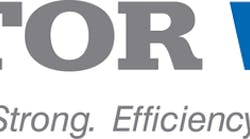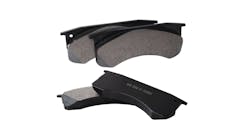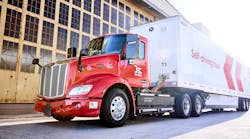Meritor Wabco has introduced what it calls a “breakthrough technology” with its ESCsmart Technology, designed to help advance the performance, functionality and flexibility of stability and traction control for commercial vehicles.
ESCsmart will be included in Meritor Wabco’s next generation electronic stability control (ESC) system when it is released in 2014.
The new technology builds upon the current “self-learning” capability whereby the system is designed to automatically adapt to changes in vehicle characteristics and wear without the need to reprogram a separate electronic control unit (ECU), says Jon Morrison, president and general manager of Meritor Wabco, a leader in the integration of safety technology for the commercial vehicle industry.
“We continually look at ways to improve base technology so that we can offer the industry more value,” he points out. “ESCsmart is a significant step in the evolution of electronic stability control.
“The technology advancements with self-learning will not only help save manufacturers time and cost in the validation and application process, but fleets can reduce downtime due to the need for reprogramming the ECU every time they have a truck and/or trailer configuration change.”
ESCsmart provides higher value to the electronic stability control system with more features and benefits than systems currently available in the market, he adds.
Learning
ESCsmart’s continuous learning functionality consistently monitors vehicle characteristics and makes adjustments to the performance of the ESC, according to Morrison. This allows for:
- Significant reduction of the validation process for manufacturers.
The system is designed to be programmed on the line and immediately be driven away, thereby eliminating the need for a calibrating driving procedure. This also saves manufacturers cost on tools and labor for physical validations.
- More flexible adaptation to multiple vehicle types and axle configurations, including vehicles with more than three axles, vehicles with steerable axle lifts and straight trucks that tow trailers.
- Elimination of a fixed driving calibration procedure each time an ECU is replaced in the field.
The system is designed to automatically adapt to the specific vehicle parameters during the normal driving process.
- Constant tuning of the system as parts wear and vehicle characteristics change over time, providing optimal lifetime performance.
ESCsmart is designed to automatically adapt to the changes in the steering ratio to maintain integrity of the ESC system.



